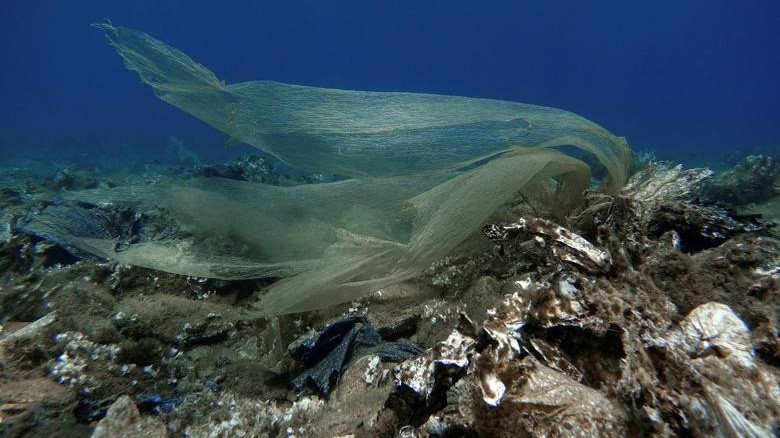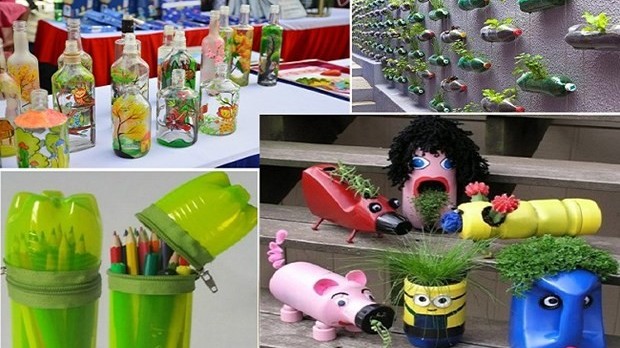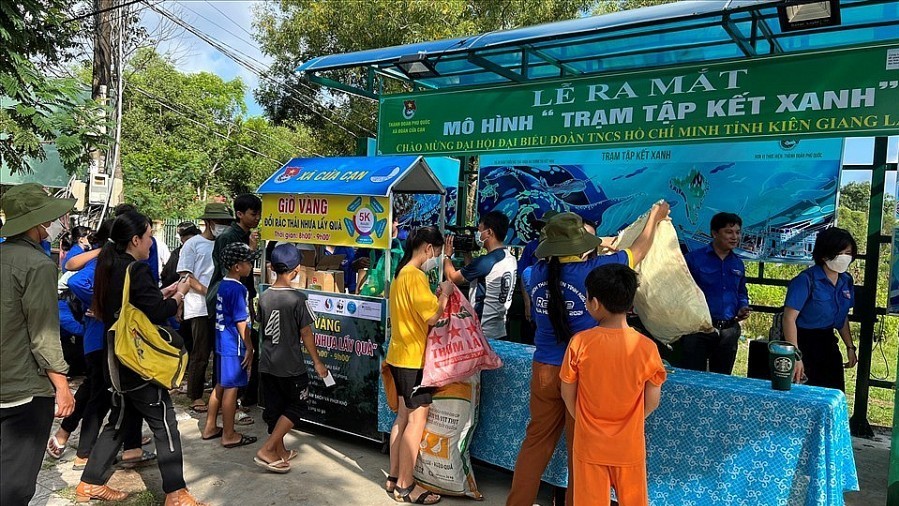
New ASEAN-wide Ending Plastic Pollution Innovation Challenge (EPPIC) launched
Latest
| TIN LIÊN QUAN | |
| PM Phuc proposes establishing global network on ocean-sea data sharing | |
| PM calls for drastic measures to control and reduce plastic waste | |
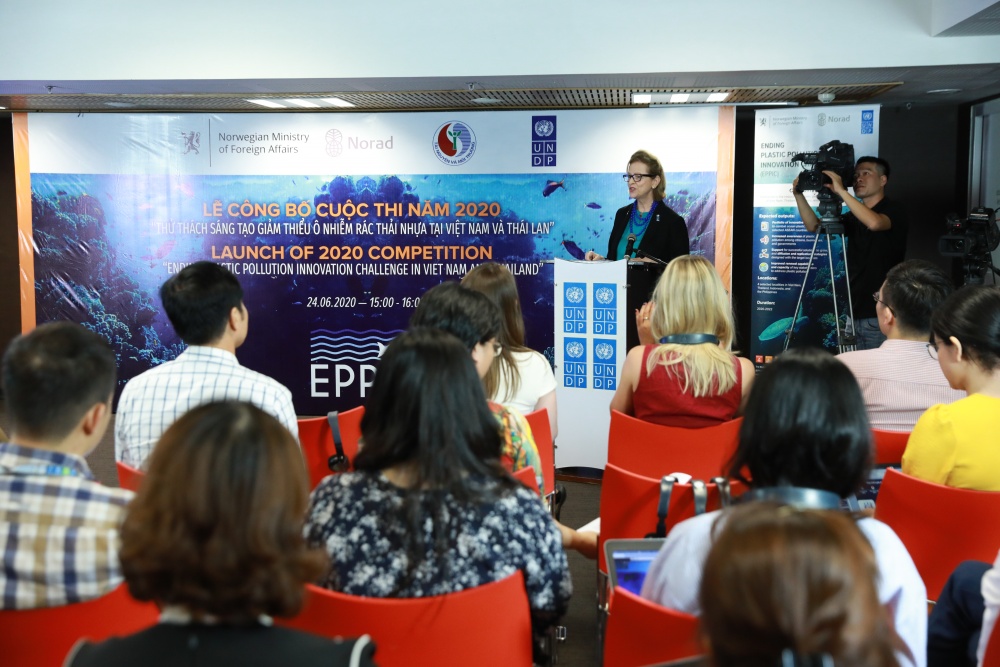 |
| At the launch of EPPIC. |
Many innovative ideas to tackle marine plastics are already being developed, but they often lack support or struggle to find ways to scale up. The Ending Plastic Pollution Innovation Challenge (EPPIC) provides an exciting opportunity for innovators to receive seed funding and incubation training to help them maximize their chances of success. The innovation competition welcomes all innovators from ASEAN – including businesses, non-profit organizations, academic, public institutions, and individuals – to share their bright ideas for solving plastic issues in Ha Long Bay or Koh Samui.
Interested innovators are invited to submit their applications on the EPPIC website between June 25 and 23:59 ICT on August 6, 2020.
The top 10 to 15 finalists will be announced on August 16 and will be enrolled for a 3-month incubation training delivered by UNDP Impact Aim, an accelerator intended to amplify the positive impact of local start-ups. At the end of the incubation training, the finalists will present their solutions during the EPPIC Final Pitching Competition, and 2 to 4 finalists will be selected by the judges as the overall winners of the EPPIC 2020. Each of the winners will receive up to USD $18,000 in equity-free seed funding, as well as an additional 9-month impact acceleration program, and opportunities to network with impact investing firms and other key development players in the ASEAN region.
For the 2020 innovation competition, a panel of judges is formed, comprising of Kari Synnøve Johansen (Norad), Sara Wingstrand (Ellen MacArthur Foundation), Regula Schegg (Circulate Capital), Giulio Quaggiotto (UNDP Asia-Pacific Regional Innovation Center), Supinya Srithongkul (Koh Samui), VASI and a representative from Ha Long Bay.
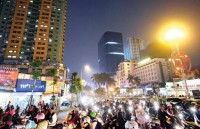
| Capital city hopes fees will reduce congestion |
About the 2020 EPPIC challenge sites
Ha Long Bay, a UNESCO World Heritage Site located in Quang Ninh province, is one of Vietnam’s most popular travel destinations, receiving 14 million visitors in 2019. The Province generates daily 1,397 tons of domestic solid waste, of which approximately 12-18% is plastic. Furthermore, around 34 tons of waste is generated from tourism alone on a daily basis, some of which are simply thrown into the sea by travelers. Ha Long Bay is also home to a large fish-farming industry with 20,600 fish-ponds and 9,600 fish cages, meaning that equipment such as buoys and fishing nets are among the most common plastic items that are being lost or discarded into the environment.
Koh Samui (Samui Island) is the largest island in an archipelago located off the north-eastern coast of Surat Thani Province in Thailand. This very famous tourist destination welcomed more than 2.5 million visitors in 2017 but possesses limited waste management systems to manage the approximately 10,800 tons of plastic waste that are generated there annually, much of it food packaging from the nearly 2,000 restaurants and convenience stores that cater to visitors.
Each year, about 8 million tons of plastic waste ends up in the ocean. As they break down into increasingly smaller pieces of microplastic, they threaten marine life, infiltrate the human food chain, and jeopardize the livelihoods of coastal communities. Vietnam itself produces 1.8 million tons of plastic waste annually, a number that only continues to increase: 2019 alone saw a jump of 16%. Considering also that only 9% of all plastic ever produced has been recycled and 40 percent is only used once, it is becoming an increasingly urgent and complicated problem to address.
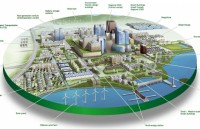
| 30 provinces and cities integrating into smart cities |
“Our planet is under threat as never before with challenges that existed long before COVID-19, especially climate change and marine plastics. We believe that ASEAN countries have an enormous innovation potential that can be scaled for significant impact. We already see efforts from member states on banning single-use plastics, applying the Extended Producer Responsibility (EPR) concept, promoting behavioral change campaigns, introducing eco-friendly alternatives, or supporting recycling initiatives,” said Ms. Kanni Wignaraja, UN Assistant Secretary-General & UNDP Director of the Regional Bureau for Asia and the Pacific.
“Norad is proud to fund UNDP Vietnam’s Ending Plastic Pollution Innovation Challenge as part of Norway’s development program to combat marine litter. Working across sectors, across countries, together we can turn off the tap and stop plastic pollution to our oceans. In order to do this, we need to think innovatively. The launch of EPPIC brings such opportunities. Opportunities to create healthier environments and to create jobs within a circular economy. We in Norad hope that this call will lead to project ideas with transformational potential,” said Mr. Bård Vegar Solhjell, the Director-General at Norad.
“Ocean plastic is a global crisis that will have to be solved particularly at the local level. Scaling innovative solutions that prevent plastic pollution and build circular value chains in Vietnam, Thailand, Indonesia, and the Philippines will go a long way toward achieving this goal. This is why Circulate Capital is investing in start-ups and SMEs across South and Southeast Asia that are sharing this vision and that we are pleased to support the EPPIC,” outlined Regula Schegg, Managing Director Asia, Circulate Capital.
“I am delighted that UNDP has decided to launch the EPPIC innovation challenge to find circular economy solutions that design out waste and pollution from the outset. These are the types of solutions we need if we want to tackle plastic pollution,” added Dr. Sara Wingstrand, Programme Manager, Ellen MacArthur Foundation.
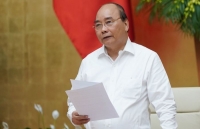
| Two biggest cities urged to take solutions to address air pollution Prime Minister Nguyen Xuan Phuc has requested the Ministry of Natural Resources and Environment to work with Ha Noi and Ho Chi Minh City to ... |
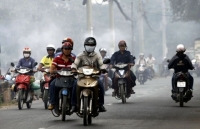
| Ministry rejects report on Hanoi pollution Hanoi ranking as the second-worst polluted city in Southeast Asia was inaccurate, according to Deputy Minister of Natural Resources and Environment Vo Tuan Nhan. |
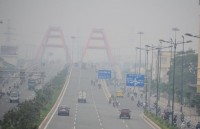
| Photo contest raises awareness of environmental protection The Centre of Hands-on Action and Networking for Growth and Environment (CHANGE) is joining hands with the 350.org, a non-profit organisation, in organizing a photography ... |




